
Long stories short to start the year in Aotearoa’s political economy around housing, poverty and climate:
Christopher Luxon fired Shane Reti as Health Minister and replaced him with Simeon Brown, who Luxon sees as National’s most politically effective minister, but who will have to manage hospitals and health with the same budget;
Luxon said the reshuffle was all about re-focusing the Government on restarting economic growth, but the main changes were in the big spending areas of Health and Transport, and the reshuffle came straight after a bad poll;
Big businesses are increasingly impatient with a lack of economic growth in the wake of the Government’s blunt fiscal tightening last year and its early-2024 freezing of spending on building state houses, local roads, school buildings and hospital re-builds;
Retail spending was sluggish again over summer and manufacturing contracted in December for its 22nd consecutive month, which was more than twice as long a contraction than during the Global Financial Crisis of 2008;
Luxon’s reshuffle hasn’t changed the self-imposed budget rules forcing the politically painful and economically unnecessary cuts in health, housing, welfare and transport;
The personnel changes also haven’t changed the fundamental incentives in the economy rewarding households for investing in residential property, rather than real businesses.
(There is more detail, analysis and links to documents below the paywall fold and in the podcast above for paying subscribers. If we get over 100 likes we’ll open it up for public reading, listening and sharing.)
Luxon fires Reti and flicks hospital pass to Brown
PM Christopher Luxon yesterday announced his first major Cabinet reshuffle, replacing Health Minister Shane Reti with Simeon Brown, along with handing over Brown’s Transport ministry to Chris Bishop and his Energy and Local Government portfolios to Climate Change Minister Simon Watts.
The reshuffle came after the publication on Friday of a Curia poll of voters from January 9-13 that found Labour leapfrogging National to be the most popular party for the first time since April 2023.
The poll also found voters thought the country was going in the wrong direction for the first time since April last year and by the most since before the election.
Big business increasingly nervous about economy
Another Curia poll for Datacom in December of 200 senior business leaders found 77% saw economic uncertainty as a threat to their business over the next 12 months, up from 13% immediately after the Government’s election a year ago.
Initial reports over the last week from Worldline, ANZ, Westpac and Retail NZ of spending in shops, cafes, bars and restaurants suggest spending over the summer has been more sluggish than expected, despite 125 basis points of rate cuts in the last six months.
Also, the BusinessNZ-BNZ survey of manufacturing found the sector contracted for the 22nd consecutive month in December, and the first time ever that it has contracted for all 12 months of a calendar year. The previous worst was in the Global Financial Crisis with nine months of contraction.
Briefly elsewhere:
There was fresh turmoil in the health sector in first weeks of the year, with cuts in key public health roles and a shocking abandonment of a non-profit hospital for operations. The Post-$$$’s Joanne Naish
The freeze in building of more affordable housing deepened in early January with confirmation Kāinga Ora has shut down a 50-home development in Ruakākā in Northland. Northern Advocate’s Denise Piper
Chart of the day:
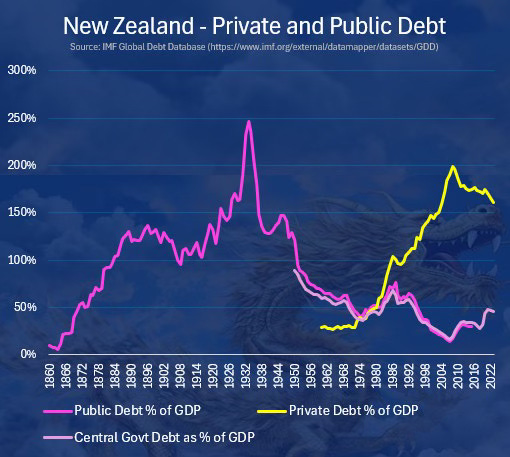
Cartoon of the day
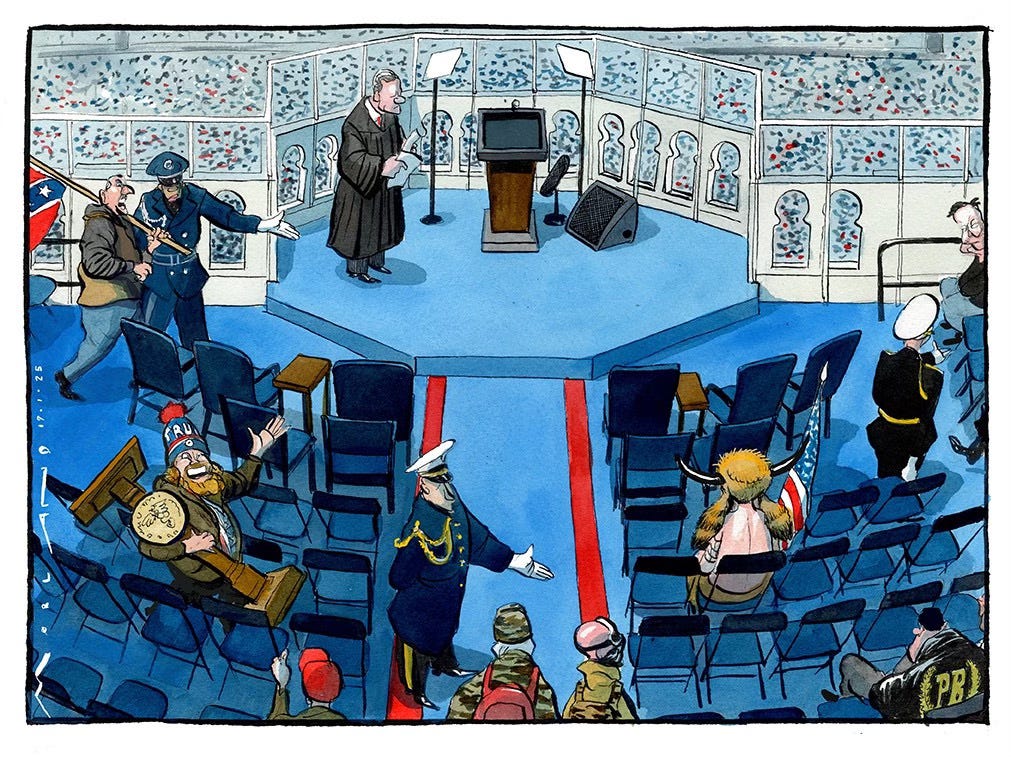
Timeline-cleansing nature pic
Ka kite anō
Bernard




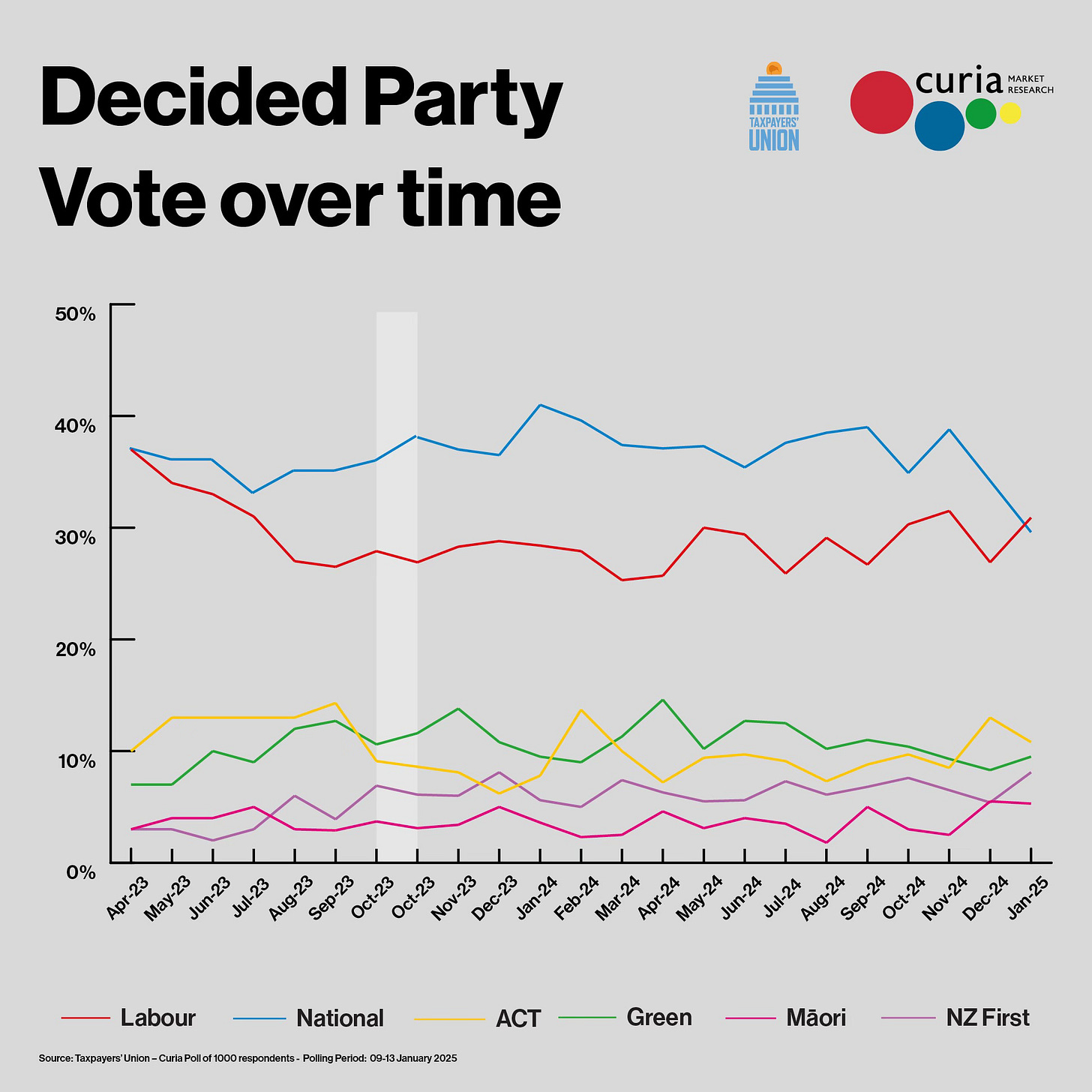
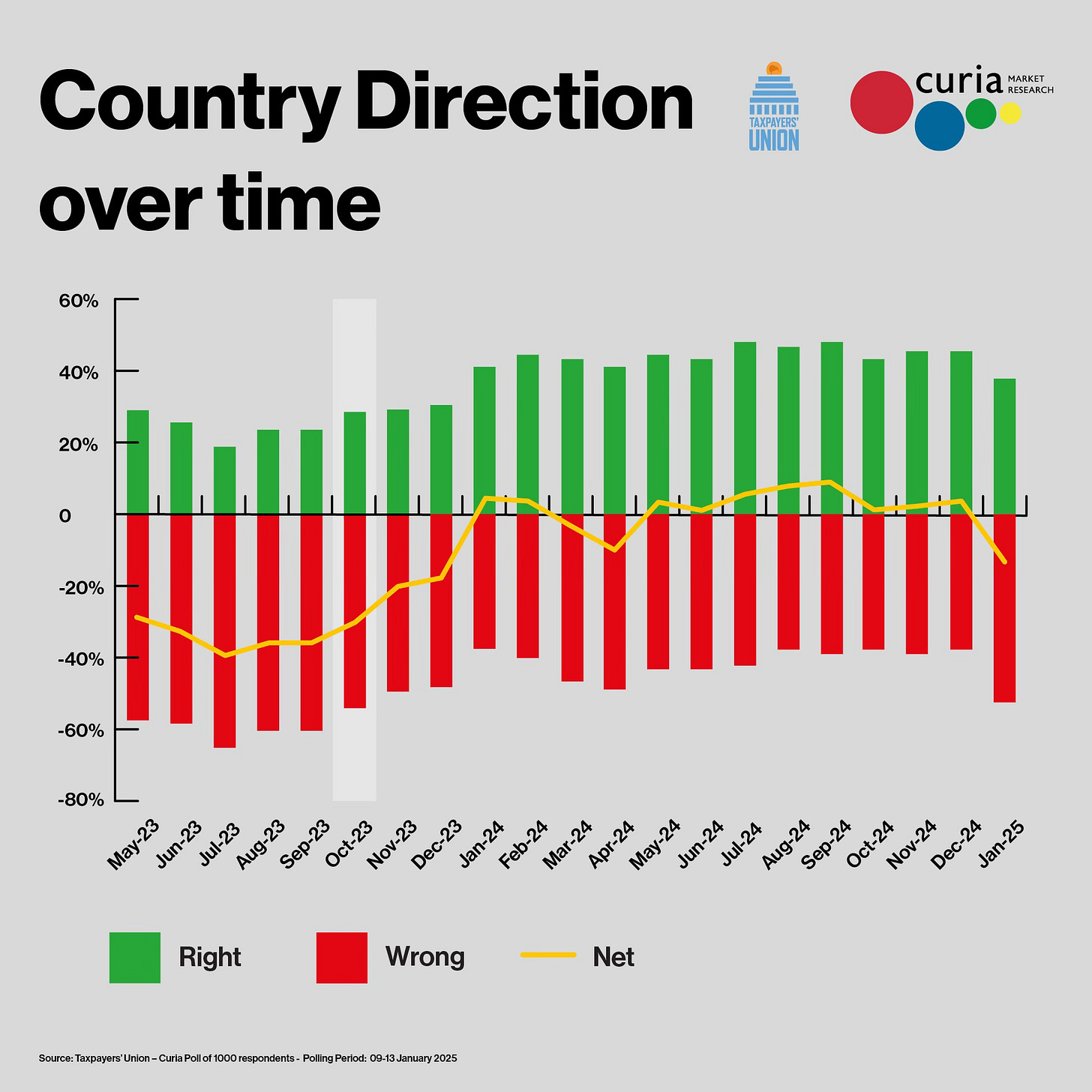
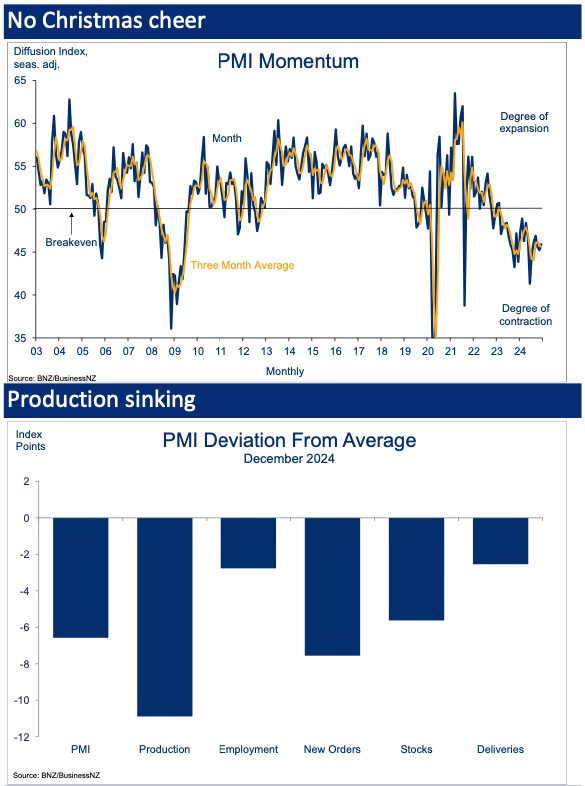












Share this post